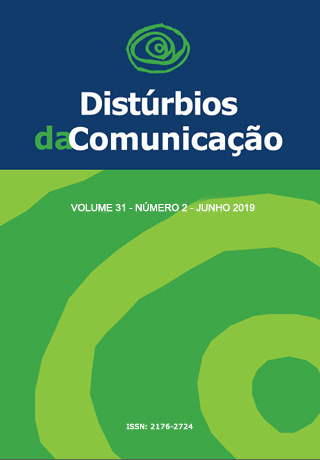Speech therapy with teachers: analysis of education
DOI:
https://doi.org/10.23925/2176-2724.2019v31i2p234-245Keywords:
Voice, Voice Disorders, Faculty, Distance, Education.Abstract
Objective: to analyze the impression of the participants of a course included in the Vocal Wellness Program, destined to teachers of the network of a municipality, offered in the modality of Distance Education. Method: to sensitize teachers about voice issues, a distance education course was presented in a municipal teaching network (40 hours divided into three face-to-face meetings, eight modules, eight forums and eight evaluations). A total of 257 teachers participated in the study. These data were categorized and subjected to descriptive analysis using absolute and relative frequencies. Result: all the modules were put into practice, and the content of one of them, known as Articulation and Resonance, registered the highest frequency of notes on being put into practice (89.29%), as it was the one that received the greatest number of praise (25.30%). The Voice module in the teaching work registered 97.14% of the suggestions. Conclusion: The findings showed the need to make adjustments in the Course to be offered to new classes, with greater emphasis on modules whose content requires greater conceptual understanding and subsequent implementation of practices. The Distance Learning mode achieved its goal by providing a moment to listen (record) to the needs of the teacher, as well as a reflection on part of the teachers with respect to their practice and working environment.Downloads
Downloads
Published
Issue
Section
License
Copyright (c) 2019 Leslie Piccolotto Ferreira, Rafaela Valiengo de Souza, Alessandra Rodrigues Souza, Juliana Schulze Burti, Mariane Maião Pereira, Susana Pimentel Pinto Giannini, Thelma Mello Thomé de Souza Pereira, Bianca Martins Castro

This work is licensed under a Creative Commons Attribution 4.0 International License.









